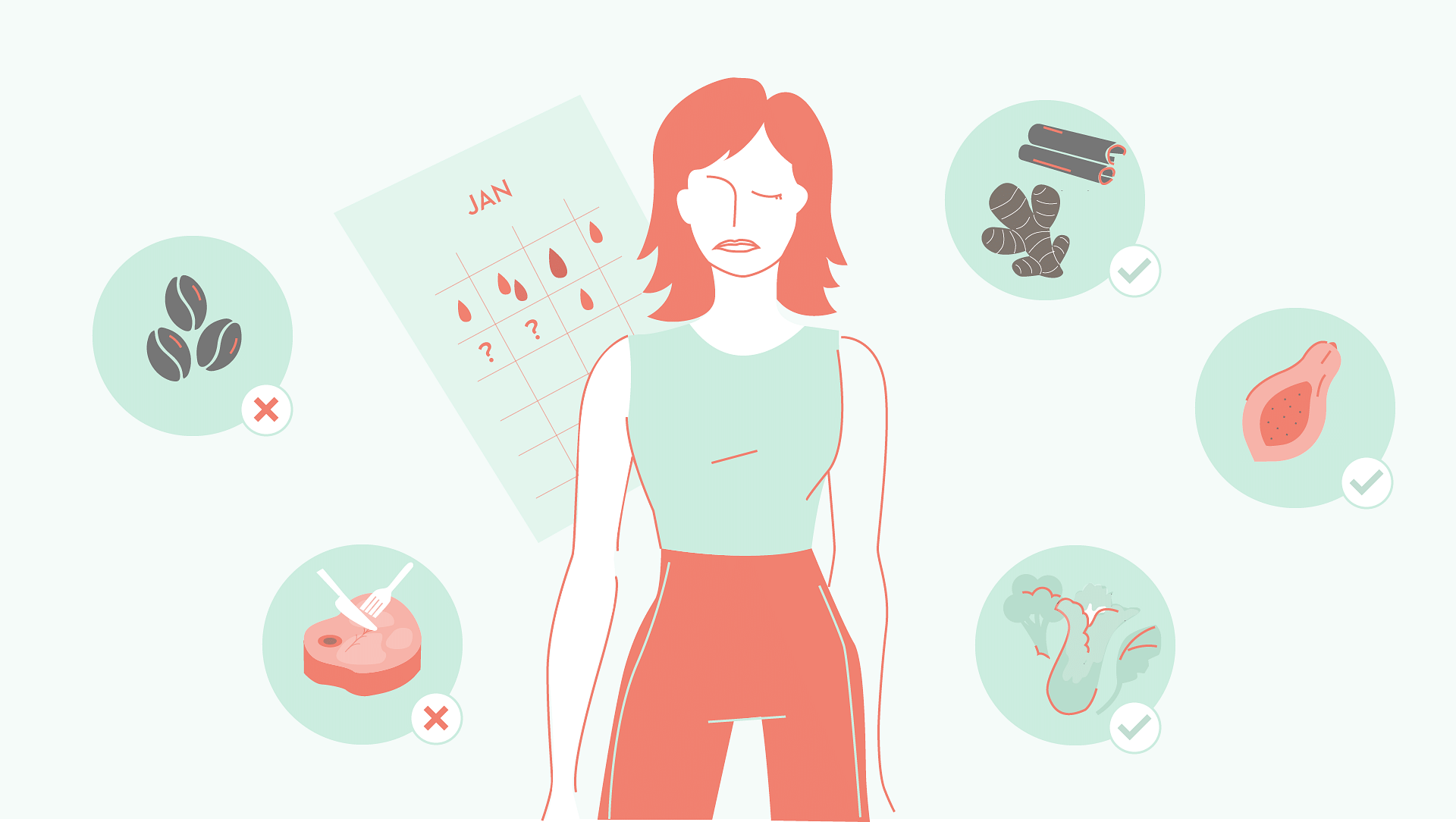An average menstrual cycle is between 28 – 35 days and on average, a woman can bleed from 2 – 8 days. It is not unusual to see occasional changes in your period cycle and blood flow due to various factors such as stress and hormonal imbalances from time to time, however, if you fail to get your period on time every month, or your monthly cycle often goes above 35 days, and your period has become irregular, there could be various reasons for it.
It is highly recommended you consult a gynaecologist at this time, but do take stock of your diet. Before looking at various food groups, the first and foremost step is to examine your diet to see for possible loopholes – if any. And then:
- Stay away from low-carb diets – if you have been trying to lose weight, have tried every fad diet in the market, and are about to go for a low-carb diet or you are already on one, then please hold on. Our bodies require carbohydrates for energy. With most of the bodily functions dependent on the consumption of carbohydrates, a low-carb diet would not only harm your metabolism but your period cycle too. On average, about 50-60% of your daily calories come from carbohydrates and hence a low-carb diet would disrupt thyroid function and lower leptin levels. Leptin is a hormone that is produced by fat cells and inhibits hunger, thereby diminishing fat storage. So, eat your complex carbohydrates (fruits, vegetables, oats, barley, daliya, etc) and stay healthy.
- Eat good fats – we often feel that fats shouldn’t be consumed as it can make us plump. But! But! But good fats are essential for the proper functioning of your body. Essential fats help in keeping your hormone levels to the optimum and support ovulation (release of an egg from one of the woman’s ovaries) a process that’s extremely important for every woman. On average, about 20% of our energy needs to come from fats and about 5-10% of it needs to specifically come from PUFA’s (polyunsaturated fatty acids). Foods rich in PUFA are fatty fish, nuts, seeds, and olive oil.
- Don’t forget the folate – folate is known to support ovulation and the levels of progesterone in the body. In short, folate boosts fertility. So please eat leafy green vegetables, legumes, eggs, citrus fruits, nuts, seeds, papaya, banana, avocado, beets, and liver.
- Enjoy your fruits – fruits are a good source of complex carbohydrates. Papaya is loaded with carotene that’s necessary for keeping the estrogen levels to optimum and it can even aid in the contraction of the uterus. Pineapple, on the other hand, has an enzyme named bromelain that could normalize blood flow and lead to the generation of red and white cells.
- Maintain a healthy weight – being overweight or underweight both could disrupt your menstrual cycle because each of these could alter your hormonal levels, leading to irregular or missed periods. Hence, if your BMI (body mass index) is on the higher side or on the lower side, then you must seek an expert opinion and lose or gain weight keeping your ideal weight in mind.
- Befriend herbs and spices – spices such as cinnamon and ginger have been found to regulate your menstrual flow and can help in normalizing your periods. Cinnamon is known to regulate insulin levels which in turn affect your hormones and menstrual cycle. Ginger can even reduce cramps and mood swings if consumed in the initial days of your period. Turmeric, on the other hand, can regulate estrogen levels thereby regularizing your periods.
- Get your daily dose of vitamins – Vitamins D and B Complex can treat menstrual irregularities and boost your fertility. Studies have shown that enough consumption of Vitamin D can boost your mood, reduce PMS symptoms and aid in weight loss. Vitamin B complex can also reduce PMS symptoms in women Consuming enough Vitamin B6 and Calcium can enhance your mood and reduce PMS symptoms. However, please do not self-supplement. Talk to your doctor and get the necessary tests done, post which you can start with additional supplements.Vitamin D rich foods are eggs, mushrooms, nuts, fatty fish and beef liver.
Vitamin B Complex rich foods are eggs, leafy green vegetables, beans, nuts, seeds, chicken, cheese, milk, avocados, beets, whole grains, citrus fruits, banana, and watermelon.
Calcium rich foods are dairy and dairy products, broccoli, okra, nuts, tofu, almond milk, soy milk, seeds, beans, lentils, amaranth and figs.
Key Takeaways:
- Eat a well balanced and healthy diet
- Consume herbal teas like peppermint, spearmint, hibiscus, chamomile and so on
- Avoid excessive consumption of meat and dairy products
- Say no to smoking and the consumption of alcohol
- Consumption of caffeine should be reduced
- Practice yoga and stay physically active
Note: We are putting together a set of articles that talk about what kind of diet constitutes a healthy diet. You can read them here.




2 Comments